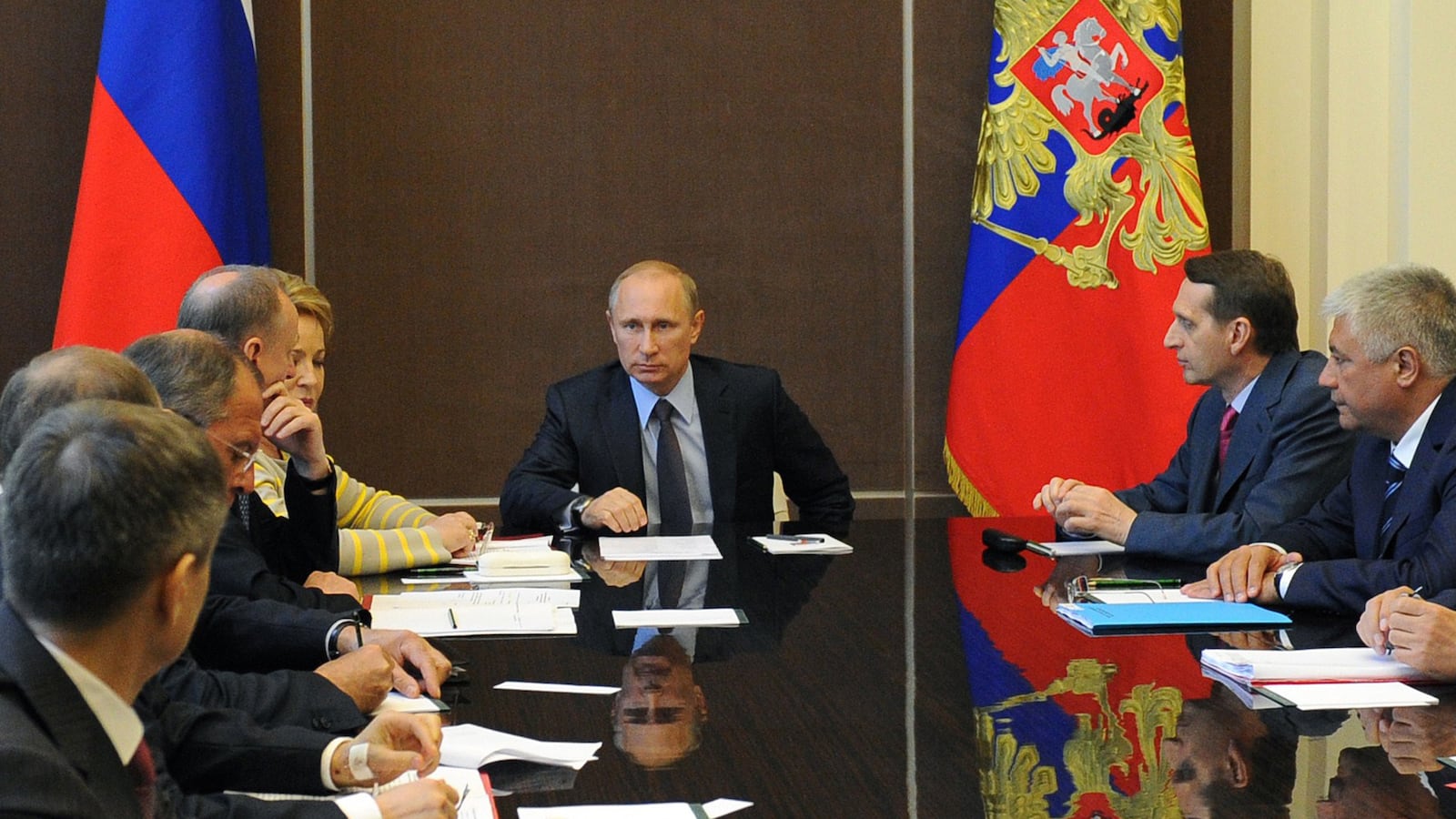Before he hopped on a plane to China on Monday, Russian Commander-in-Chief Vladimir Putin met members of his Security Council in Sochi and ordered the withdrawal of the Russian army from Ukraine’s border. It was not the first time. Twice before, Putin has announced he’s pulling back his forces, but not many soldiers moved. This time, according to political experts who’ve been studying the president for over a decade, both liberals and conservatives, it sounds like he means it.

What made Putin change his mind about leaving the army poised to help pro-Russian rebels in eastern Ukraine? Why would he disappoint them as they’re waiting for the Russian soldiers as saviors?
“Clever people finally managed to convince him that he was a little wrong about Ukraine,” says Igor Bunin, director of Center of Political Technologies, listing the reasons for Putin’s decision: “that pro-Russian sentiment is not necessarily as significant as some like to present it; that providing for the Luhansk and Donetsk regions would be expensive for Russia; and most importantly, that the third stage of sanctions threatened the Russian economy.”
But the main reason for the withdrawal was the number of troops: “It is one thing to invade Ukraine, and a different thing to keep the occupied regions under control,” says military expert Alexander Golts. Putin had thousands of rapid-reaction troops at hand just 50 kilometers (31 miles) away from the Luhansk region, on highways leading into Ukraine. But to control millions of people living in the Luhansk and Donetsk regions, Russia would need to set up thousands of checkpoints that would require bringing draftees to Ukraine. “That all sounded too problematic,” Golts says.
For over two months, Russia reserved its right to use military forces to defend Russian nationals in Ukraine. Images broadcast last month showed Russian tanks, fighter jets, and artillery that had been waiting near the border for Putin’s decision since mid-April. On the other side of the border, a military conflict increased by the day—the map of violence included towns of Slovyansk, Kramatorsk, Krasnoarmeisk, and Mariupol—and dozens of families cried at the funerals of victims of both the Ukrainian forces and the rebels.
At the epicenter of the fighting, the town of Slovyansk, the rebels had believed that the Russian army would arrive within a day or two. “Where is Uncle Vova?” many of them wondered. “Is he going to help us?”
Artillery shelling is heard in Slovyansk almost every night. The region from Odessa to Donetsk has been flooded with stories about Ukrainian nationalists killing innocent men and women, many of them true. But the Russian army never came. The separatists held a referendum that they claim validated their quest for independence, if not indeed annexation back into the Russian empire. But even before that happened, Putin had started signaling his willingness to honor the results of other elections, to be held this weekend, for a Ukrainian national government.
“Now Moscow will signal to the rebels to stop fighting—by the end of this week, the Kremlin is going to recognize the results of the elections in Kiev,” Bunin said.
Aware of Putin’s agenda to collect more former Soviet territory, Russia’s neo-imperialist hawks were in no hurry to put their swords away. Deputy Prime Minister Dmitry Rogozin, hinting at a continuation of the tensions, tweeted a quote from Bismarck: “I know hundreds of ways to lure the Russian bear from its den, but none to get him back.”
Many of Putin’s supporters are disappointed. “For now, we are defeated: We won 2 million people in Crimea but lost 43 million in the rest of Ukraine,” pro-Kremlin expert Yuriy Krupnov told The Daily Beast. He raised the possibility that “the war might begin as a result of our forces retreating, as a result of our weakness.” But then he added, “The main battle is ahead of us—it is for Central Asia.”





